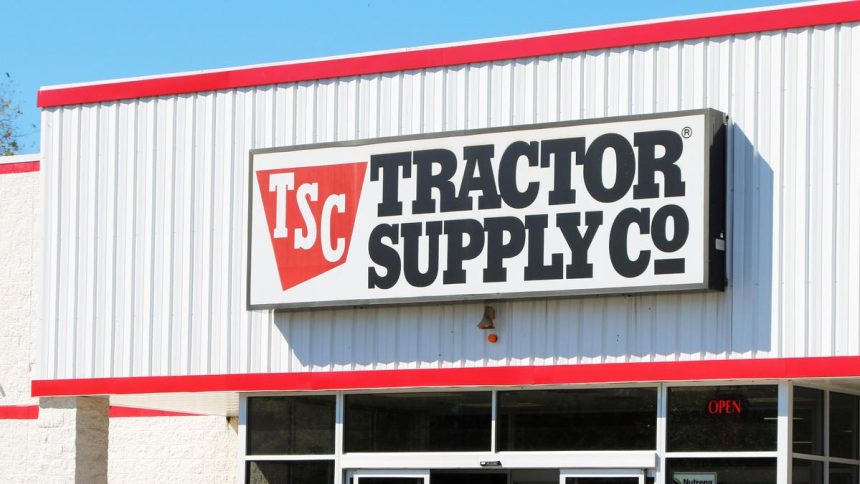One of the surprise winners to emerge from a retail industry buffeted by the pandemic, inflation, tangled supply chains, and inventory gluts has managed to double its sales over the past five years with an eclectic product mix that ranges from chicken wire and livestock ropes to pet supplies, to what might be dubbed farm and country couture—Carhartt canvas jackets and Wolverine work boots.
“For life out here” is today’s slogan at Tractor Supply, a chain that, for most of its 80-plus years, was best known for selling equipment to the traditional farm and ranch market.
The change began with a bang starting in the second quarter of 2020, just as the chaos of the pandemic was upending the retail landscape and super-charging e-commerce.
The company’s annual revenue surged 27% in 2020, nearly 20% in 2021, and another 11.6% in 2022, as the fringe suburbs in major markets began attracting crowds of Covid refugees discovering the charms of life as recreational farmers and ranchers.
While most retailers were in panic mode trying to navigate a volatile and treacherous economy, Tractor Supply discovered a whole new customer cohort—Millennials (those born between the early 1980s and the late 1990s) who were fleeing the cities for the bucolic charms of the most distant suburbs of major urban markets.
Tractor Supply’s good fortune was as much a result of its expanding customer profile as it was a recognition by the company’s leadership that it needed to adjust its product mix and culture to fit its shoppers. Hal Lawton, who became chief executive in early 2020, led a tricky transition to woo the incoming rural novices without alienating its original base. Stores were revamped. To the merchandise mix were added pet supplies, baby chickens, and and women’s clothing along with the men’s heavy denim pants and sturdy footwear that appealed to both its traditional base and the hobby farmer with an urban sense of style.
Lawton recently told the Wall Street Journal that before Covid, the company sold little in the way of such luxuries as bundles of pre-split firewood. “Our core customer was like, ‘When a tree falls, that’s how I get my wood, and I have a chainsaw.’” The mix began to change almost overnight, and the company says it picked up nearly 20 million new customers between 2020 and 2021.
Today, you’ll find stacks of pre-split firewood on display out front, along with chicken coops, rototillers, and deer food. Tractor Supply (which briefly considered but rejected changing its name to reflect the customer mix) tested products that seemed like a natural fit—internet-connected thermostats, for example—but gathered dust. The company learned that staples like extension cords sold better with packaging that had farm and ranch themes.
The success of Tractor Supply has been driven by a focus on understanding its new customers and what they want.
This seems like an obvious merchandising move. However, many retailers, especially in fashion, focus too often on products, especially at the high end, and hardly consider their customers. Walk into a luxury department store anywhere in the world, for example, and you get the feeling the clerks are checking you out to determine if you are worthy of the luxury merchandise they sell.
Walmart is many times larger than Tractor Supply, but its ability to pivot to merchandise that fits its customer base has been a key to its equally phenomenal success. But what happens as Tractor Supply’s new millennial shoppers evolve from suburban cowboys?
CEO Lawton, in a recent interview on CNBC, seems to have a pretty good grip on how the company might respond. “The pandemic drove some significant behavioral change in the millennial generation … household formation, pet adoption, having a child, buying a home,” he says.
“The first year they do that, it’s about getting a dog, maybe a Carhartt hoodie. Second year it might be around planting a garden, raised bed, or in the ground, maybe starting to raise chickens. It might be year three or year four until they get a log splitter and a chainsaw as they just kind of grow into living life out here.”
As he explained, it is truly about listening and understanding your customers and then figuring out what to serve them. This is true customer-centricity, but it does require checking your ego at the door.
That sort of essence/DNA should continue to grow Tractor Supply from a nuts-and-bolts retailer to a company that knows how to put people ahead of products.
Read the full article here




